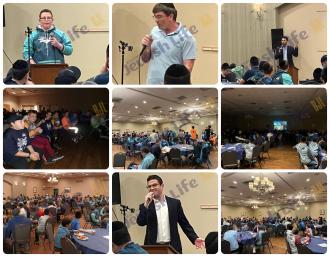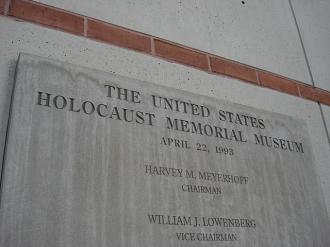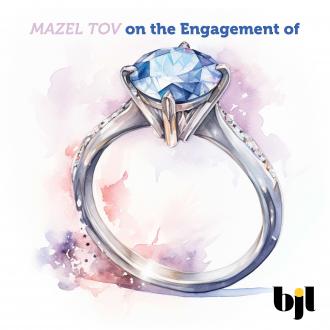Marking Holocaust Remembrance Day on Monday, 28 Nissan, Yad Vashem launched a new online exhibition, “Last Letters from the Holocaust: 1942,” featuring ten emotional letters written by Jews before they were murdered. A two-minute siren sounded at 10:00am nationwide, marking the beginning of the day’s events.
As Israel marks Holocaust Martyrs’ & Heroes’ Remembrance Day, Yad Vashem, the World Holocaust Remembrance Center, calls on the public to submit the names of family members and friends who were murdered during the Holocaust, and to provide survivor testimony about their experiences from this period. To date, Yad Vashem’s Shoah Victims’ Names Project has collected over 4,700,000 names of Jewish men, women and children murdered by the Nazis and their collaborators. “It is a race against the clock to collect as many names of those murdered during the Holocaust before there are no more survivors left,” says Dr. Alexander Avram, Director of the Hall of Names at Yad Vashem.
Yad Vashem officials add, “This ongoing project is particularly pertinent given the central theme of this year’s Holocaust Remembrance Day, ‘Restoring Their Identities: The Fate of the Individual During the Holocaust.’ Nazi Germany’s ideology of destroying the Jewish people not only included the desire to murder every Jewish man, woman and child on the face of the earth, but also centered on its attempt to obliterate any evidence of Jewish life and heritage. Since its inception, Yad Vashem has endeavored to reverse these efforts by gathering the names of the millions of Jews murdered in the Shoah and commemorating the rich and diverse culture of decimated Jewish communities across Europe and North Africa.
“Restoring the victims’ identities by documenting, remembering, researching and educating not only commemorates the world that was lost, but also makes a substantial contribution to shaping a new and better world. Bonding in this way with specific individuals from the Holocaust enables us, in our post-Holocaust generation, to gain meaning that helps shape our own identities and enriches our world.
“In this vein, Yad Vashem has uploaded a new online exhibition entitled “Last Letters from the Holocaust: 1942,” presenting a small selection of the final messages written by Jews trapped in Nazi-occupied Europe in 1942 to their loved ones. These emotional missives represent the last wills of Jews who wished to impart their desires, hopes and dreams to their loved ones, in several instances their own children. For many recipients, they were the final greetings and messages they would hear from their family members.
“Yad Vashem’s Archives house thousands of such letters, many of which are now viewable online, some for the first time. The letters included in this online exhibition were sent from Belarus, France, Germany, Holland, Poland and Ukraine, and were written in a variety of languages, including Dutch, French, German, Hebrew, Polish, Russian and Yiddish. Each letter and postcard reveals the last remaining fragment, both physical and personal, of the victims: their own handwriting. This is another method by which Yad Vashem portrays the personal identities of the victims of the Holocaust as individual people – mothers, fathers, brothers and sisters, contemporaries and friends – who must never be forgotten. ‘We will continue our efforts to bring the identities of the victims back from oblivion,’” remarked Yad Vashem Chairman Avner Shalev.

















